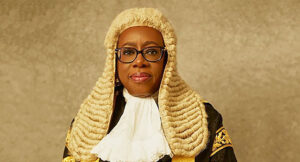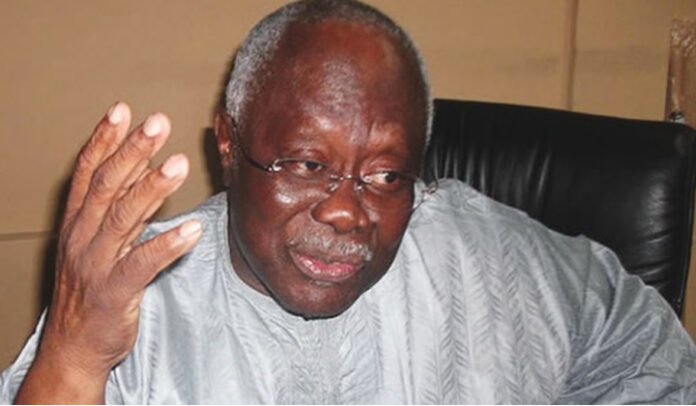Former Deputy National Chairman of the Peoples Democratic Party (PDP), Chief Olabode George, has urged Chief Justice of Nigeria (CJN) Justice Kudirat Kekere-Ekun to prioritize the eradication of what he describes as judicial rascality, which he claims has permeated the country’s judicial system.
In a congratulatory letter to Kekere-Ekun, following her confirmation by the Senate and subsequent swearing-in by President Bola Ahmed Tinubu, George expressed deep concern regarding the alarming verdicts that have emerged from the judiciary over the past 25 years since the military handed power to the political class. He noted that these decisions have become increasingly “offensive to millions of Nigerians, both at home and abroad.”
In his letter, “Chief Bode George to CJN: Time to End Judicial Rascality is Now,” George criticized certain judicial rulings as embarrassing to patriotic citizens and warned that if left unaddressed, such developments could jeopardize Nigeria’s democracy.
He lamented that judicial rascality has become commonplace, especially from courts of coordinate jurisdiction, stating that Nigeria now faces a situation where distant courts issue confusing orders, leaving the public bewildered.
George, who also holds the title of Atona Oodua of the Yoruba, pointed out that while appellate courts can override lower court decisions, a High Court—whether federal or state—should not issue a counterorder on a case outside its jurisdiction with another High Court.
He called on the newly appointed CJN to convene an urgent meeting of the National Judicial Council (NJC), involving judges from both state and federal courts, to address the increasing number of conflicting judgments from courts of coordinated jurisdiction.
“Failure to do so could lead to judicial anarchy,” he warned.
“Nigerians have lost respect for some judicial officers, openly critiquing the errors in their judgments on national television.

“Enough is enough. From the 1950s to the 1980s, judges were respected for their unwavering integrity.
“Those were the golden years of the Nigerian judiciary, but now we face chaos and confusion. Many Nigerians openly claim that some judges are influenced by politicians, and it has reached an unacceptable level,” George asserted.
He posed critical questions about the current state of the judiciary, asking why Nigerians no longer respect certain court judgments, what went wrong, and why the judiciary struggles to maintain control over politicians and political parties. He expressed concern that technicalities are often misused to uphold electoral fraud, undermining the will of the people.
George questioned the legitimacy of having only a few judges determine electoral outcomes for millions and criticized the judiciary for sometimes supporting politicians who bypass party primaries due to “technicalities.”
“Many people participate in elections, only for the popular vote to be overturned by a handful of judges. This is an affront to democracy.
“We now see politicians who did not engage in party primaries being recognized by the judiciary as candidates due to technicalities. This leads to a widespread belief that certain executive members intimidate judges for favourable outcomes,” he added.
Despite his concerns, George expressed optimism that Kekere-Ekun, as CJN and a Lagosian from a distinguished legal family, will bring valuable insights to the judiciary, helping it regain its esteemed position akin to its reputation from the 1950s to the 1980s.
“As the chief judicial officer in the world’s most populous black nation, I believe the judiciary will greatly benefit from your expertise.
“With you leading the judiciary, I am confident it will reclaim its rightful place, reminiscent of the golden era we once experienced,” George concluded.




